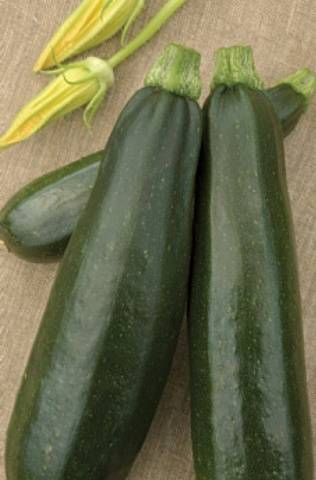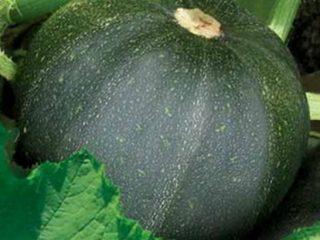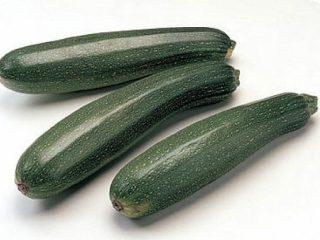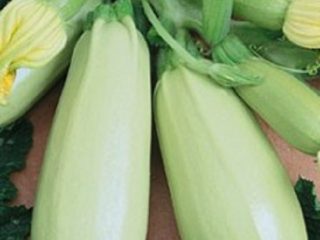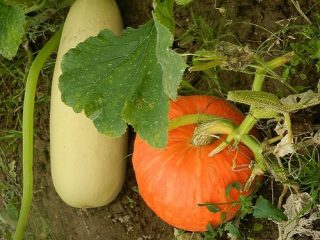Green-fruited zucchini, otherwise called zucchini, have long become regulars in our gardens. Such popularity is easily explainable: they are several times superior to the varieties of ordinary zucchini. They are more early maturing and do not grow to huge sizes. In addition, zucchini can be eaten raw, without any heat treatment. There are many such varieties, but we will consider courgette zucchini Skvorushka.
Variety characteristic
Zucchini Skvorushka belongs to the early maturing varieties. Its technical ripeness occurs on average 50 days from germination. Compact bushes Skvorushki have mainly female flowers, which has a positive effect on the number of ovaries. Zucchini of this variety have the shape of a cylinder with a slight ribbing. They have a smooth and thin skin of dark green color with white blotches. The maximum length of a squash variety Skvorushka can be 25 cm, and the weight ranges from 0.5 to 1.2 kg. The fruit has a juicy and white flesh. Due to its tenderness, the pulp has excellent taste characteristics. Ideal for any kind of food preparation and preservation. In addition, the pulp of the fruit can be eaten raw.
To do this, a zucchini of the appropriate size is simply cut from the bush.
Plants of this variety are resistant to drought and sudden changes in temperature. But the main value of the Skvorushka variety zucchini lies in the rapid and almost simultaneous growth of fruits. It is a high yielding variety. From one square meter, you can harvest up to 10 kg. In addition, zucchini tolerates transportation well.
Growing recommendations
For optimal growth, squash of the Skvorushka variety needs a sunny area with a soil neutral in terms of acidity. If the soil on the site is acidic, then it must be limed. Also, a few months before planting, it will not hurt to fertilize the land. Organic fertilizers give good results.
The ideal place for planting will be the beds after crops such as:
- potatoes;
- tomato;
- bow.
You can grow Skvorushka zucchini in the following ways:
- Through seedlings - it should be prepared in April.
- By sowing with seeds - this method can be used only after the end of the frost. The disembarkation is carried out at the end of May and beginning of June. Several seeds are planted in the holes at once. If all the seeds have sprouted in one hole, then only the strongest sprout should be left. The rest must be carefully removed.
When planting plants using any of the proposed methods, the recommended distance between the bushes must be observed - at least 60 cm.
The variety is quite undemanding to care. He needs regular watering, without strong waterlogging of the soil. In addition, it responds well to loosening and hilling. If necessary, it is possible to apply both organic and mineral fertilizers.

